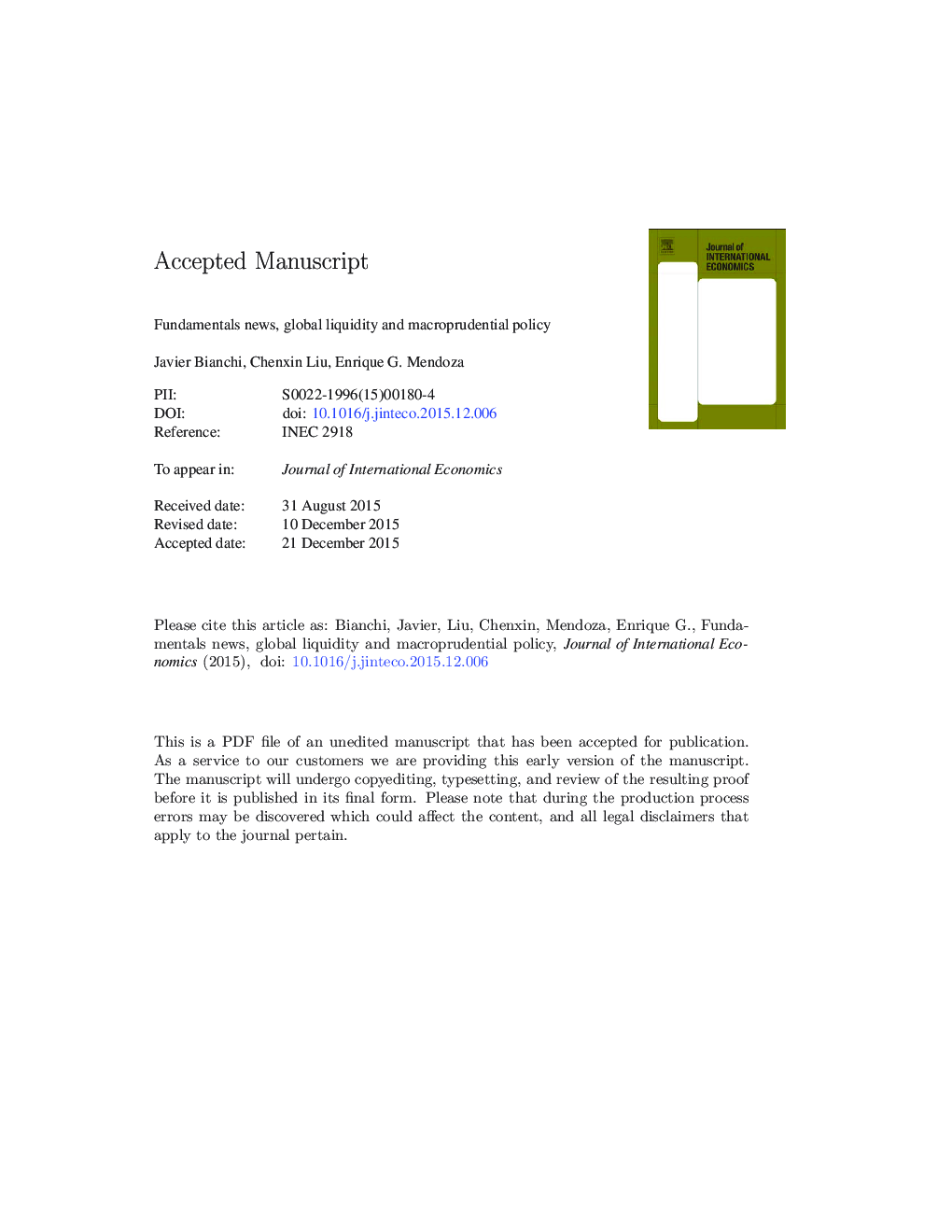| Article ID | Journal | Published Year | Pages | File Type |
|---|---|---|---|---|
| 10477327 | Journal of International Economics | 2016 | 36 Pages |
Abstract
We study optimal macroprudential policy in a model in which unconventional shocks, in the form of news about future fundamentals and regime changes in world interest rates, interact with collateral constraints in driving the dynamics of financial crises. These shocks strengthen incentives to borrow in good times (i.e. when “good news” about future fundamentals coincide with a low-world-interest-rate regime), thereby increasing vulnerability to crises and enlarging the pecuniary externality due to the collateral constraints. Quantitatively, an optimal schedule of macroprudential debt taxes can lower the frequency and magnitude of financial crises, but the policy is complex because it features significant variation across interest-rate regimes and news realizations.
Keywords
Related Topics
Social Sciences and Humanities
Economics, Econometrics and Finance
Economics and Econometrics
Authors
Javier Bianchi, Chenxin Liu, Enrique G. Mendoza,
